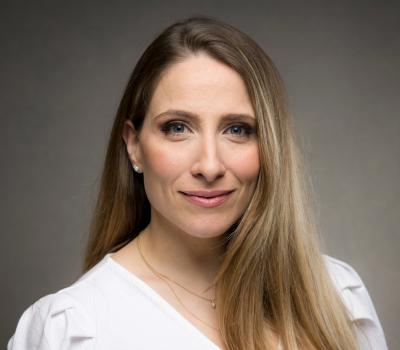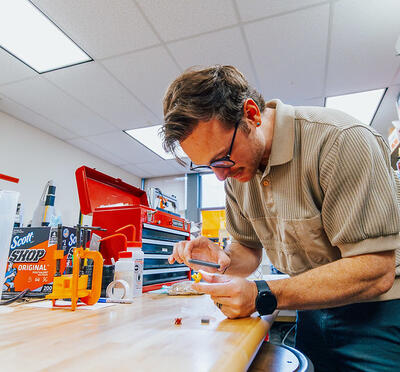Ten days before the start of the spring term, Bryony DuPont was readying her new home office and preparing strategies for an entire 10-week academic quarter of remote teaching. She also emailed the 62 students registered for her Design for Manufacturing class — where enrollment is about 50% higher than normal.
“When I went through teacher training in graduate school, I learned that one of the best ways to get to know your class is by clarifying what they can expect from you and what expectations you have for them,” said DuPont, who is the Boeing Professor of Mechanical Engineering Design in the College of Engineering at Oregon State University.
As much as anything, the intent of DuPont’s email was to reassure students that they could count on her to help them as much as possible in a world turned on its head by COVID-19.
“I thought about the precarious position that many students are in,” DuPont said. “Like all of us, they’re dealing with the prospect of their friends, family, and themselves getting sick. They’re dealing with economic stress. Many will lose part-time jobs that allow them to attend college. Those who are close to graduating worry if they’ll pick up the necessary credits. I thought it was more important to first let them know that I care about them as human beings more than I care about their performance in the class and to reassure them that the class would go on and we’d get through it together.”
During the first class, DuPont explained the extensive adjustments to the content and organization of the course, which normally involves a good deal of hands-on, collaborative project work. Among the changes:
• About a quarter of the course material was pared in order to distill the information to its most essential elements and still enable students to meet the course’s learning outcomes.
• All classes are recorded and can be watched on demand.
• Classes have been designed so that they can be viewed independently and asynchronously. Unlike a conventional course, classes don’t build on one another. “That’s important,” DuPont said, “because if students miss a live class for any reason, they can watch it and jump back into the flow without feeling that they are falling behind. That was one of biggest changes I made.”
• The final project involves reverse engineering. Students will deconstruct an existing product to reveal its design components and logic. Previously, the final project had been a hands-on DIY product students designed and built from scratch, but many students don’t have access at home to the proper equipment.
• Students will assess their own progress — a technique that can be successful in both classroom and remote teaching, according to DuPont. “They’re in a much better position to assess how well they’re learning material than I am from afar,” she said. “Every time they complete homework, they are prompted with a series of questions to evaluate how well they got it. Most important to me is that they understand the material, rather than other measures, like attendance or turning assignments in on time.”
• There are three self-grading levels: Strong (exceeded expectations, with evidence to support the claim); Standard (did everything well, on time and ethically, but could have put in more time and effort); Wobbly (didn’t meet the standard, didn’t answer all questions, rushed the work, or submitted late). “These self assessments are historically very truthful,” DuPont said. “But I do reserve the right to change an assessment if it seems inaccurate.”
• There is no midterm. Quizzes are open book and ungraded, and they can be taken repeatedly. “I just want them to know how well they’re learning,” DuPont said.
DuPont reports that her first class went smoothly, with a minor technical glitch that was ironed out right before the lecture began. “One of the things I made very clear in the first meeting is that I trust them to do this in a professional and honest way. That trust is what makes me think it will all work out.”




